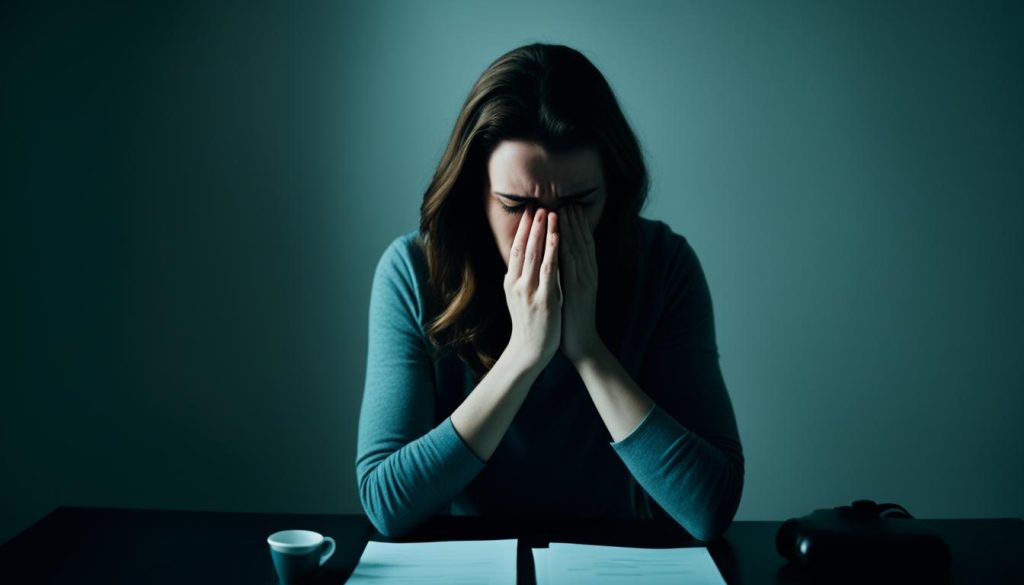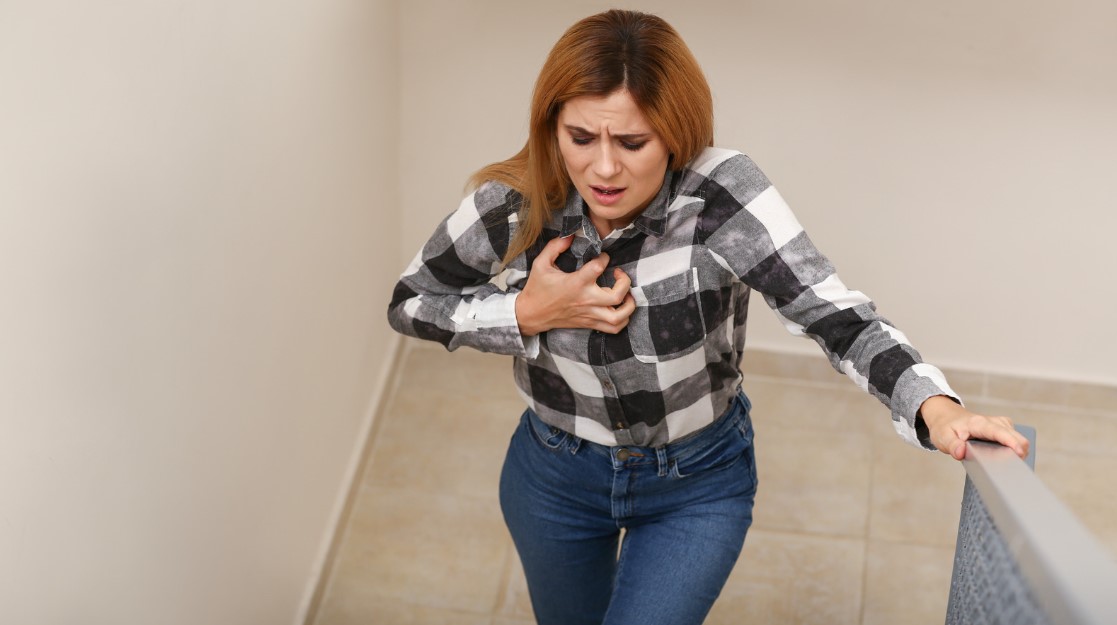A panic attack can be an incredibly overwhelming experience, causing sudden and intense anxiety. If you’ve ever had one, you know how distressing it can be. The good news is that there are strategies you can use to stop a panic attack and find relief. In this article, we will explore effective techniques for managing panic attacks and provide tips for preventing them from occurring.
In the following sections, we will delve deeper into understanding the symptoms of panic attacks, techniques to stop them, general tips for managing anxiety, and ways to support someone experiencing a panic attack. By implementing these strategies, you can regain control over your anxiety and live a more fulfilling life.
Symptoms of Panic Attack and Panic Disorder
A panic attack can be a terrifying experience, causing intense feelings of anxiety and distress. Understanding the symptoms of panic attacks and panic disorder can help individuals recognize and seek appropriate treatment for their condition.
During a panic attack, individuals may experience various physical and emotional symptoms that can mimic a heart attack or other serious medical conditions. These symptoms can include:
- A racing heartbeat
- Feeling faint or dizzy
- Sweating
- Nausea
- Chest pain or discomfort
- Shortness of breath
- Trembling or shaking
- Hot flushes or cold chills
- Shaky limbs
- Dizziness or lightheadedness
- Numbness or pins and needles sensations
- Dry mouth
- A feeling of dread or fear of dying
- A churning stomach
- A tingling in the fingers
- Feeling disconnected from the body
While panic attacks are typically brief and typically last for a few minutes to half an hour, the impact they have on individuals can be significant. In some cases, panic attacks may indicate the presence of panic disorder, an anxiety disorder characterized by recurrent and unexpected panic attacks.
Individuals with panic disorder often experience symptoms of anxiety, stress, and panic that occur regularly and without any apparent trigger. These panic attacks can happen at any time and often have no specific cause. If panic attacks are happening frequently or significantly affecting daily life, it is important to seek medical help for an accurate diagnosis and appropriate treatment.
Panic Attack versus Anxiety Attack
It’s worth noting that panic attacks and anxiety attacks are terms that are often used interchangeably. While they share similarities, there are some distinctions between the two.
Anxiety attacks are typically a reaction to a specific stressor or trigger, while panic attacks are sudden and can occur without any identifiable cause. Panic attacks tend to be more severe, with intense physical and emotional symptoms, while anxiety attacks may be milder and more focused on feelings of apprehension or unease.
Treatment for Panic Attacks
Effective treatment options are available for individuals experiencing panic attacks or panic disorder. Seeking help from a healthcare professional is crucial in developing an appropriate treatment plan. The most common approaches for treating panic attacks include:
- Cognitive Behavioral Therapy (CBT): This form of therapy helps individuals identify and modify negative thought patterns and behaviors that contribute to panic attacks. CBT can provide valuable coping mechanisms and strategies to manage anxiety and reduce the frequency and severity of panic attacks.
- Medication: Antidepressant medications, such as selective serotonin reuptake inhibitors (SSRIs), and anti-anxiety medications, such as benzodiazepines, may be prescribed to help manage panic disorder. It is essential to consult with a healthcare professional to determine the most suitable medication and dosage.
With the right treatment approach and support, individuals experiencing panic attacks or panic disorder can find relief and regain control over their lives.
 The image above illustrates the symptoms commonly experienced during a panic attack.
The image above illustrates the symptoms commonly experienced during a panic attack.
How to Stop a Panic Attack?
When a panic attack strikes, it can feel overwhelming and debilitating. However, there are several techniques that can help you regain control and alleviate the symptoms. By employing these strategies, you can effectively manage panic attacks and find relief. Here are some techniques to consider:
1. Remind Yourself that the Attack Will Pass
During a panic attack, it’s important to remind yourself that the sensations and emotions you’re experiencing will eventually subside. Remember that panic attacks are temporary and do not cause any physical harm. This understanding can help you stay grounded and reduce anxiety.
2. Deep Breathing Exercises
One effective technique for managing panic attacks is deep breathing exercises. When you feel an attack coming on, focus on regulating your breath. Breathe in slowly and deeply through your nose, then exhale slowly through your mouth. This can help calm your nervous system and bring your body back to a more relaxed state.
3. Calming Essential Oils
Another approach is to utilize the power of aromatherapy. Smelling calming essential oils, such as lavender, can help reduce symptoms of panic attacks. Simply open a bottle of lavender oil and take a deep breath to inhale the calming aroma.
4. Grounding Techniques
Grounding techniques are effective in redirecting your focus away from panic and towards the present moment. Find a peaceful spot and concentrate on an object in your surroundings. This can help bring your mind back to reality, reducing anxiety in the process.
One popular grounding technique is the 5-4-3-2-1 method. Engage your senses by identifying five things you can see, four things you can touch, three things you can hear, two things you can smell, and one thing you can taste. This sensory exercise helps divert your attention away from the panic attack and back into the present.
5. Mantras and Physical Activity
Repeating a calming mantra or engaging in physical activity can also help interrupt the cycle of panic. Find a positive affirmation or phrase that resonates with you, and repeat it to yourself during a panic attack. Additionally, going for a brief walk or engaging in gentle exercise can help shift your focus away from the panic and calm your body.
6. Muscle Relaxation and Visualization
Progressive muscle relaxation is a technique that involves tensing and then relaxing different muscle groups in your body. This exercise can help release tension and promote a feeling of relaxation. Furthermore, visualizing yourself in a peaceful and happy place can also help calm your mind and reduce anxiety.
7. Medication, Support, and Trigger Identification
If you have been prescribed medication for panic attacks, it’s important to take it as directed by your healthcare provider. Additionally, talking to a supportive friend, family member, or therapist can provide valuable emotional support during a panic attack. Identifying triggers that may lead to panic attacks and working to avoid or manage them can also contribute to stopping future episodes.
General Tips for Managing Anxiety and Preventing Panic Attacks
In addition to specific techniques for stopping panic attacks, there are general tips that can help manage anxiety and prevent future panic attacks. By incorporating these strategies into your daily life, you can reduce anxiety levels and improve overall well-being.
1. Breathing exercises:
Deep breathing exercises can help regulate your breathing during a panic attack and promote a sense of calm. Try the 4-7-8 breathing technique:
- Inhale through your nose for a count of 4.
- Hold your breath for a count of 7.
- Exhale slowly through your mouth for a count of 8.
2. Meditation:
Practicing meditation regularly can help reduce anxiety and promote relaxation. Find a quiet and comfortable space, close your eyes, and focus on your breath or a peaceful image. Start with short meditation sessions and gradually increase the duration as you become more comfortable.
3. Regular exercise:
Engaging in regular physical exercise is not only beneficial for your physical health but also for your mental well-being. Exercise releases endorphins, which are known as “feel-good” hormones that can help reduce anxiety and improve mood. Aim for at least 30 minutes of moderate-intensity exercise, such as brisk walking or cycling, most days of the week.
4. Social support:
Building a strong support network can provide comfort and assistance during times of anxiety or panic. Reach out to friends, family, or support groups who can offer understanding and encouragement. Sharing your experiences with others who have similar struggles can be particularly helpful.
5. Avoid triggers:
Identify the triggers that contribute to your anxiety and panic attacks, and try to minimize your exposure to them. This might include certain situations, substances (such as caffeine or alcohol), or thoughts that exacerbate your symptoms. By avoiding these triggers, you can reduce the likelihood of experiencing a panic attack.
6. Adopt a healthy lifestyle:
Take care of your physical and mental health by adopting a healthy lifestyle. This includes getting enough sleep, eating a balanced diet, and avoiding excessive stress. Prioritize self-care activities that bring you joy and relaxation, such as practicing hobbies or spending time in nature.
7. Cognitive behavioral therapy (CBT):
Consider seeking therapy from a qualified professional who specializes in treating anxiety and panic attacks. Cognitive behavioral therapy (CBT) is a common and effective form of therapy that helps individuals identify and change patterns of negative thinking and behavior that contribute to anxiety. CBT can equip you with coping strategies and mental tools to manage panic attacks.
8. Natural remedies:
Some individuals find relief from anxiety symptoms by incorporating natural remedies into their routine. These may include:
- Lavender: The soothing scent of lavender essential oil may help reduce anxiety and promote relaxation.
- Valerian: Valerian root is a herbal supplement that may have calming effects and help with sleep.
- Lemon balm: Lemon balm is a herb that is believed to have anxiety-reducing properties.
- Kava extract: Kava extract is derived from the roots of the kava plant and may help alleviate anxiety symptoms.
It’s important to note that natural remedies may not work for everyone, and their effectiveness can vary. Consult with a healthcare professional before incorporating any new supplements or remedies into your routine.
By implementing these general tips and techniques into your lifestyle, you can take proactive steps towards managing anxiety and preventing panic attacks. Remember, each individual’s experience with anxiety is unique, so it’s essential to find the approach that works best for you. Consulting with a healthcare professional can provide personalized guidance and support on your journey to better mental well-being.

Helping Someone During a Panic Attack
If you encounter someone having a panic attack, there are steps you can take to help them. Remaining calm, finding a quiet spot, and encouraging slow, deep breathing can provide support. Telling the person that the attack will pass and helping them focus on an object or repeat a mantra can also be beneficial. It’s important to listen actively and offer reassurance. If someone frequently experiences panic attacks in a specific environment, it may help to inform someone in that environment and let them know how they can provide support.

| Ways to Help Someone During a Panic Attack |
|---|
| Remain calm and composed |
| Find a quiet spot |
| Encourage slow, deep breathing |
| Help them focus on an object or repeat a mantra |
| Listen actively and offer reassurance |
| Inform someone in their frequent panic attack environment for ongoing support |
Conclusion
Panic attacks can be overwhelming and frightening, but there are effective strategies for stopping them and regaining control. By practicing techniques such as deep breathing, grounding, finding a peaceful spot, and focusing on an object, you can reduce the symptoms of a panic attack. It’s also important to manage anxiety in general through lifestyle changes, therapy, and natural remedies.
If panic attacks persist or significantly impact your daily life, seeking medical help is recommended. Remember that you are not alone, and there are resources available to support you in overcoming panic attacks and managing anxiety. With the right tools and support, you can take steps towards living a life free from the constraints of panic attacks.
Take the first step towards finding relief and developing a personalized plan for panic attack treatment. By addressing the underlying causes and implementing effective coping strategies, you can stop panic attacks forever and experience a sense of calm and peace in your life. Don’t let panic attacks hold you back – seek anxiety attack help and start your journey towards a healthier, happier you today.


